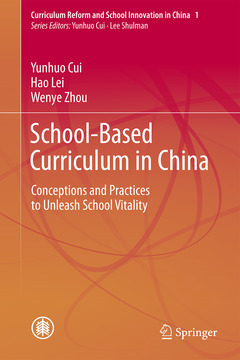School-Based Curriculum in China, 1st ed. 2020 Conceptions and Practices to Unleash School Vitality Curriculum Reform and School Innovation in China Series

This book first develops a framework to understand the curriculum administration system in China. It describes the historical process of localizing school-based curricula as well as the significance and positioning of school-based curricula, and presents in detail cases of how three types of school-based curriculum were developed and implemented in Chinese schools.
The book outlines for the first time best practices in school-based curriculum development in China, i.e. how to make a holistic curriculum plan, how to design a curriculum, and how to develop a course in the context of a school-based curriculum. By discussing these three aspects, it clearly summarizes the strategies and technologies for school-based curriculum development, which are applicable across contexts.
Although the concept originated outside China, school-based curriculum development in China differs from that in other countries both in theory and practice. This book equips readers with theoretical and practical knowledge of how to develop school-based curricula and how to generate experiences for new curriculum development.This timely book is a valuable resource for researchers, curriculum designers, school teachers and others who are interested in school-based curriculum development.
Date de parution : 12-2020
Ouvrage de 167 p.
15.5x23.5 cm
